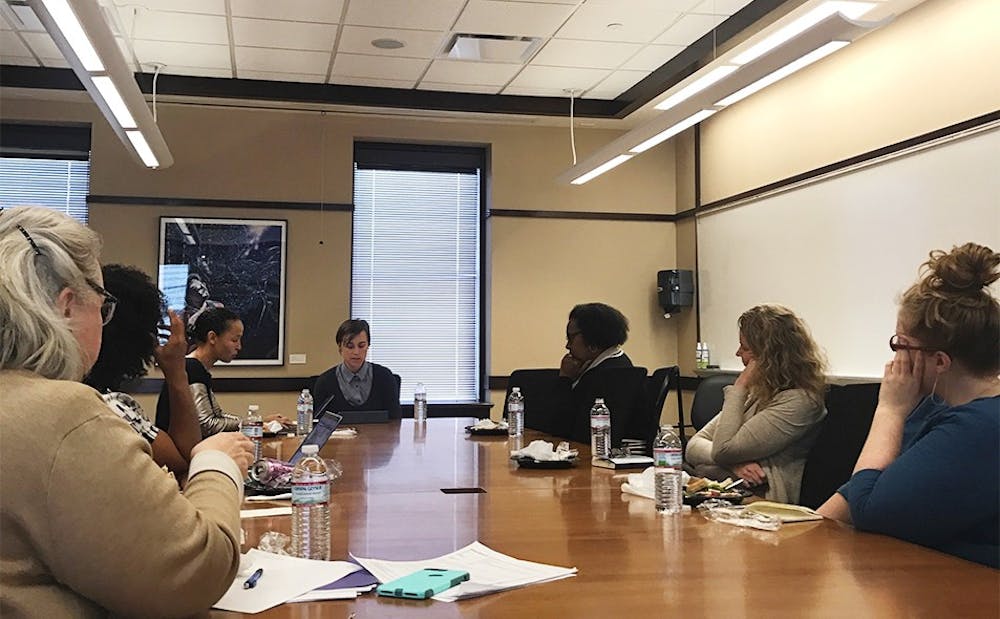An anthropologist from South Africa spoke on campus Tuesday about the causes of the country's high rate of interpersonal violence.
Kelly Gillespie, senior lecturer in the department of anthropology at the University of the Witwatersrand in South Africa, discussed her research and material in her future book “Idle Acts: Criminality and the Dialectics of Punishment in Post-Apartheid” at an event sponsored by the Social Movements Lab.
In her research, Gillespie focuses on criminal justice in South Africa and the intersection of feminism and politics. During the talk, she noted that the rate of interpersonal violence in South Africa is higher than the global average. Eighty percent of murderers are known by their victims, and 60 percent are either friends or relatives. In cases of rape, around 75 percent of women know their rapists. The number is even higher—90 percent—with assault.
Gillespie argued that domestic violence is an example of the privatization of violence in South Africa, noting that to women in this region, the home is more dangerous than work or other public spheres. She described this as “nesting brutality,” highlighting that one in six women reported being in an abusive relationship, a likely underestimated report.
The history of apartheid—a racially segregated South Africa—and the explosion of a drug economy all contribute to the violence found in private moments instead of public forms, Gillespie's research finds.
“You have privatization of resources creating the inability to constitute through work place, union, political space and public space,” she said.
Gillespie discussed her interactions with people who have experienced privatized violence or been affected by violence in their neighborhoods. She recalled meeting with a woman named Abby, a mother of three and wife. Speaking to Gillespie in a fast food restaurant so members of the community wouldn’t overhear, Abby shared how she felt trapped in an abusive relationship where her husband treated her private parts as property given by God.
On another occasion, Gillespie met a young man who joined a gang because of the politics in the neighborhood. When imprisoned due to transporting drugs, he became part of a prison gang. After his release, he had nowhere else to go but back to his neighborhood.
Gillespie has worked with feminist organizations in Cape Town, which encouraged women to report domestic violence incidents to police. She also noticed efforts of bringing police into households and making protection orders available to neighbors.
Although some places may call for more police stations to be built, there are police members who are not adept at handling situations in the complex social private scene, Gillespie said. When police cannot fix problems, people call for military intervention, which poses the problem of military fatigue.
Junior Mumbi Kanyogo attended the event and said it was helpful for her as a gender, sexuality and feminist studies major. Since she works in the Women’s Center, the topic of domestic violence is relevant in both her academic and work life. Being from Kenya herself, the focus of such issues in South Africa was another factor that led her to the event.
Meredith Watkins, program coordinator of the Duke University Center for International and Global Studies, also attended. She noted that there were faculty of different ethnic and cultural backgrounds at the event which opened up a dialogue and brought up different perspectives.
“[This event is] a great opportunity to have people come from other countries and talk about their experiences and their research,” Watkins said.
Get The Chronicle straight to your inbox
Signup for our weekly newsletter. Cancel at any time.

